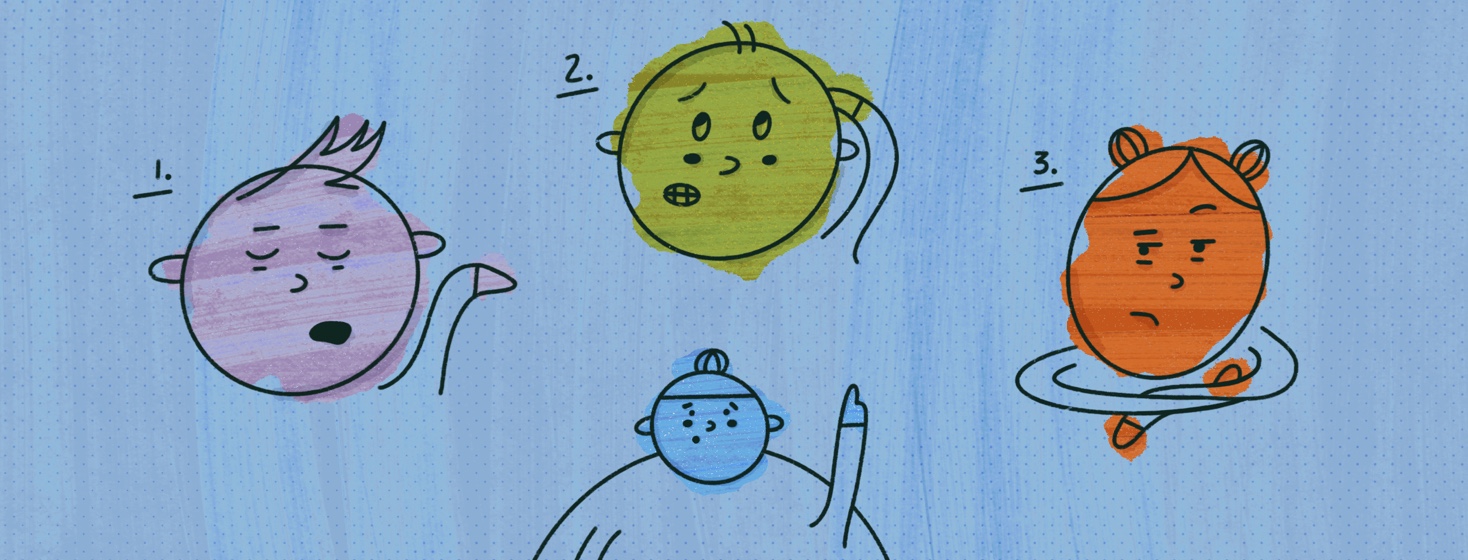3 Typical Reactions to Narcolepsy
When I was first diagnosed with narcolepsy in 2018, I would have never pictured myself talking openly about it to anyone, let alone strangers.
It wasn’t until 2020, after publishing my blog, that I even shared my condition with some of my closest friends. It took me a while longer to start to feel completely comfortable sharing with total strangers, but luckily my advocacy work helped a lot with this.
Becoming more comfortable with sharing about narcolepsy
These days, I am fortunately very comfortable in sharing my condition, and I try to share it with as many people as possible to raise awareness and help people cope with narcolepsy. I began doing this even more when I moved to Portugal and realized that absolutely no one knows about narcolepsy.
The funny thing is that the more confident I become with sharing my condition, the more I have started to notice that there are 3 typical reactions that people have.
Common reactions to hearing about narcolepsy
I’m not sure if this is exclusive to Portugal, but this has been my experience so far.
The Awkward Reaction
By far, a big part of the people I have shared my condition with had a very awkward reaction. It’s as though as soon as I mention that I have a chronic condition, they immediately don’t seem to know what to do with themselves.
This group of people don’t seem to be reacting negatively at all, so I tend to not take it personally. I think they simply just don’t know what to say.
In these situations, I usually try to change the subject if I sense that it does make them truly uncomfortable. Although I do want to raise awareness, I also realise that not everyone may feel comfortable talking about these issues, and it’s important to respect that.
The Curious/Skeptical Reaction
While some people feel awkward, others are more than comfortable talking.
They will bombard you with questions and experiences about narcolepsy, and at first, I genuinely thought that they were simply curious. It took me a while to catch on to the fact that what seemed like innocent curiosity was skepticism in disguise.
It’s hard to describe how you can tell if someone is curious or skeptical, but I think the easiest way to tell is to pay attention to how the conversation is making you feel. If you feel as though you’re trying to defend or justify your condition, then something is wrong.
The Dismissive Reaction
My least favourite of all is undoubtedly this one, and unfortunately, it’s also the one that tends to happen most of all.
I believe that almost all of us within the narcolepsy community are well-acquainted with the feeling of being dismissed, especially when it comes to our symptoms. Unlike people who are skeptical (which means that they are distrustful of what you’re saying), people who are "dismissive" give you the impression that what you’re telling them is either uninteresting, unimportant, or likely exaggerated.
People with narcolepsy and ADHD, two separate conditions, are often prescribed similar medications for example.
Of course, not all people are like this, but I’m sad to say that from my experience up until today, good, genuine people are harder to come by.
How do people react to your narcolepsy?
Although I know that not everyone is comfortable with being as open about their condition, this is still something I would love to have more insight into when it comes to other people’s experiences.
Have you come across any typical reactions, or do you find that people do react in 1 of the 3 ways described here?
Thank you for reading!

Join the conversation